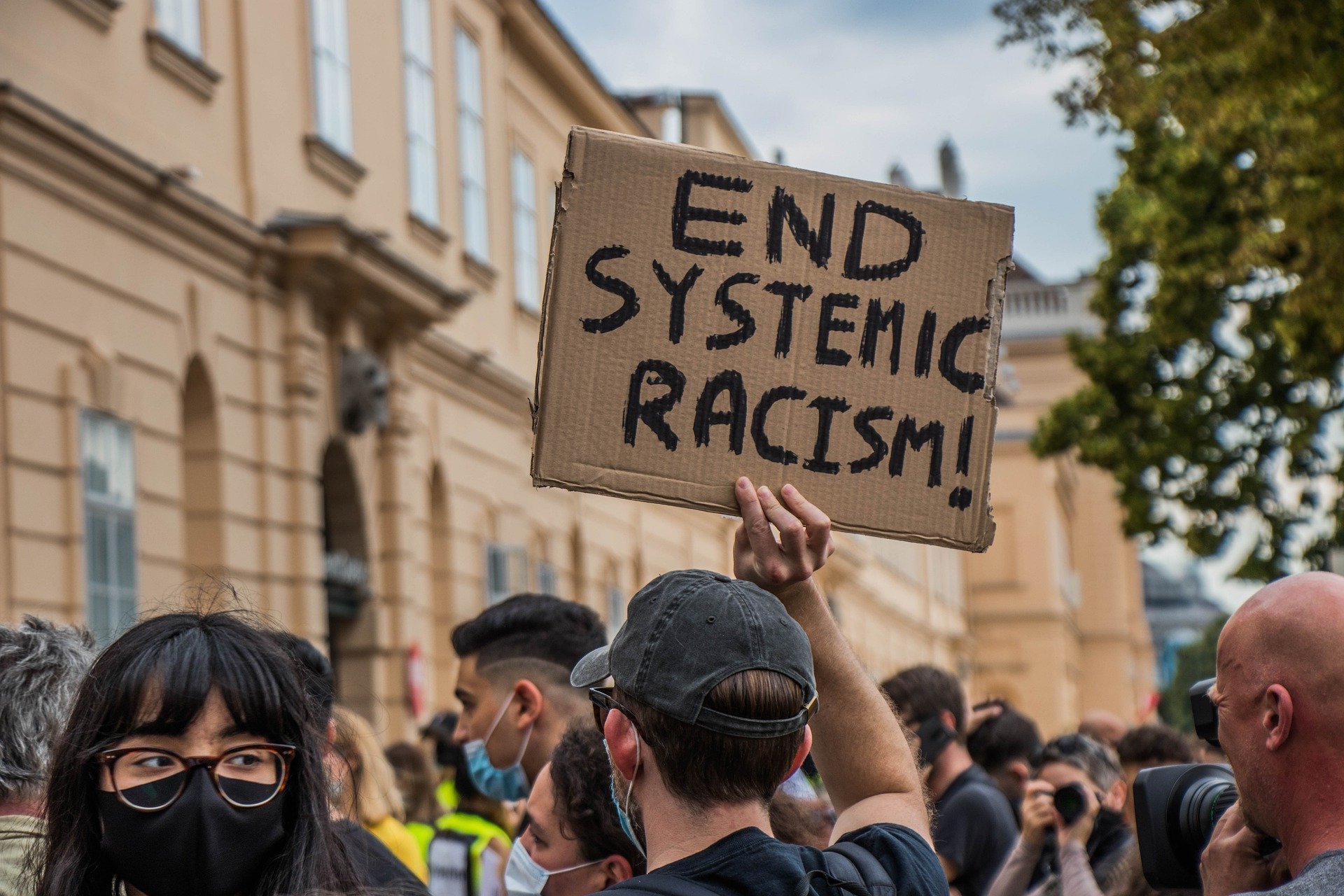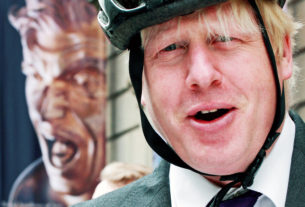*Support NewsLeaf.com from as little as £1 via PayPal by clicking here.
In recent days I have witnessed many disingenuous arguments being made about “white lives” and why those “don’t matter”, from many people who really ought to understand what the protests really mean. However, many people do not know what the meaning behind Black Lives Matter is, people who do not experience or have never learnt about white privilege or overt discrimination may not see the very real systemic issues facing black people in Britain today.
They might see successful Black Britons in the media and not recognise the very real issues that are present in the United Kingdom today. I have had many conversations that reflect the underlying belief of many that racism was a problem of the past; “Britain is no longer a racist country”, some people wrong claim.
The events on the streets of London on Saturday, with “statue defenders” using the excuse of protecting “British culture” against the protesters is an example of the overt racism that is still prevalent in Britain today, which BLM are trying to highlight and fight against.
Ironically, these counter protests have perhaps done more to further the cause of Black Lives Matter in the public consciousness than the protests on previous days, highlighting to the silent majority of Britons the very real and very present nature of racism.
This is not an attempt to tell people how to protest or what they should feel or do in modern Britain, that is not and will never be my place, or something for me to comment on. Instead this piece is aimed at other White people, for them to understand the issues at the heart of the protest movement and appeal to their better nature to make progress in modern Britain.
I have alluded to the reaction from many against the name Black Lives Matter, with some disingenuously arguing that it implies other lives do not matter. One of the best rebuttals to this idea I have heard relates to the current Coronavirus pandemic.
The attention of the whole world has turned towards this new killer, we have invested heavily into researching for a vaccine to end the pandemic and return to our normal lives; we have taken drastic action.
Why did we do this? We did not suddenly decide that only those who are dying from coronavirus are important, to the contrary much of the drastic measures taken have been to protect existing capacity to deal with other diseases. But this new threat had to be tackled and tackled head on, this does not mean we care any less about cancer, or heart disease – two major causes of death in modern Britain.
Yes, all lives matter; we can’t however ignore the fact that at current, people of colour and specifically black Britons have disproportionate outcomes in society and it is to the detriment of all of us that systemic racism continues to plague our society.
White privilege is perhaps the most unknown concept for many Britons when it comes to racism. When you are in a less fortunate position than some people of colour, you might perceive it as insulting to suggest that you are somehow more privileged than they are, simply due to the colour of your skin. Indeed, this is an opinion held by many people and is understandable in a world where wealth of the working class and middle class is diminishing.
The largest misconception is that ‘white privilege‘ is something that you feel or are conscious of. It is perhaps best described as a negative privilege. You cannot necessarily feel you have white privilege as it is something that you do not experience, a sort of freedom from certain treatment permitted by your skin colour. It is the absence of being disproportionately stopped by police, or the absence of having to consider whether you will be considered an outsider in your place of work, due to the colour of your skin.
For a far more effective and comprehensive understanding of white privilege I would encourage people to read Reni Eddo-Lodge’s best-selling book Why I Am No Longer Talking To White People About Race.
The major challenge to the notion of white privilege comes from the notion that the real issue in society is not racial but is class based. The fact that white males from working class families have amongst the lowest educational attainment is a frequently cited example of this class issue.
This is not entirely wrong. Class is a significant factor in the current outcomes for individuals in the United Kingdom, however, a more detailed breakdown will reveal the disproportionate numbers of black people and other people of colour who find themselves in the lowest brackets of income and wealth.
Whilst the issue is partly based on class – as Reni Eddo-Lodge discusses – this cannot be wholly separated from the issue of race, and the two must be considered concurrently in order to understand why the least wealthy communities are disproportionately minority communities.
This stems from our history. The Windrush generation faced significant backlash when emigrating to the United Kingdom, which systematically kept them out of wealthier neighbourhoods, with legacies of poorer schools and fewer opportunities engraining this racial element into the class structures of the nation. Signs such as “no dogs, no gypsies, no blacks” may no longer on the front doors of shops, but the legacies of this discrimination still persist today.
The protests in the United Kingdom began with the killing of George Floyd in the United States. Whilst the experience of racism in the United Kingdom differs somewhat, it is important to recognise that we are not immune from the issues that Americans are currently protesting.
Whilst police brutality and overt racism is not the same as in the United States, the social structures of our nation have baked the lines of racial prejudice and discrimination so deeply into the fabric of our society that systemic racism is a problem that is not only difficult to solve, but, for many, difficult to recognise. Our national biography may not include a period of systematic segregation, but the result of discrimination throughout our history has resulted in systemic racism that persists to this day.
Systematic racism is a society which sets out to deliberately create bias and discrimination, systemic is the result of engrained social structures that have baked unequal outcomes into the system. Whilst Britain does not systematically discriminate in the 21st century, the legacies of the past have created a clear systemic structure that continues to damage the life chances of black and brown Britons.
For real change, it is incumbent on White people to understand what Black Lives Matter means, and to understand what white privilege is; important to recognise the ways in which their behaviours, albeit subtle, contribute to the ongoing systemic racism in Britain.
Yes, you have a right to dislike the vandalism of Winston Churchill’s statue and to condemn the vandalism of it, but it is important to recognise the views he held about people of colour. His greatness in defeating Hitler must always be recognised, but so should his actions in Africa and in India, which for many, is the defining legacy of the man in their cultural heritage.
The nuance of history is important and so is learning about the very real legacies of our past and the impact that this still has on the lives and outcomes for many black Britons. It is crucial to recognise the experience of other people of colour too, which although not the focus of attention in the Black Lives Matter protests, is increasingly becoming part of the movement.
Posting recommendations of books to read on Instagram is important, and encouraging others to learn is vital, but this can be an echo chamber. The social media generation mostly accept and understand the reality of these facts – the benefit of having 24 hour access to the wealth of internet news – and have come to see and understand the different experiences of Black people in the UK.
Focusing on this can create the illusion of doing something, but often only preaches to the converted.
I am often staggered by the lack of understanding for what white privilege actually is, and what the Black Lives Matter movement represents.
It is incumbent on, and to the benefit of, all of us that we challenge racism where we see it and seek to educate ourselves and those who are less knowledgeable on the very real issues. We must effectively promote change for the betterment of society and to do that we must talk to white people about race.
_____________________________________________________________________________

Calum Paton is a History and Politics student at the University of Warwick. His writing predominantly focuses on American and British politics. Twitter: @Paton_Calum




